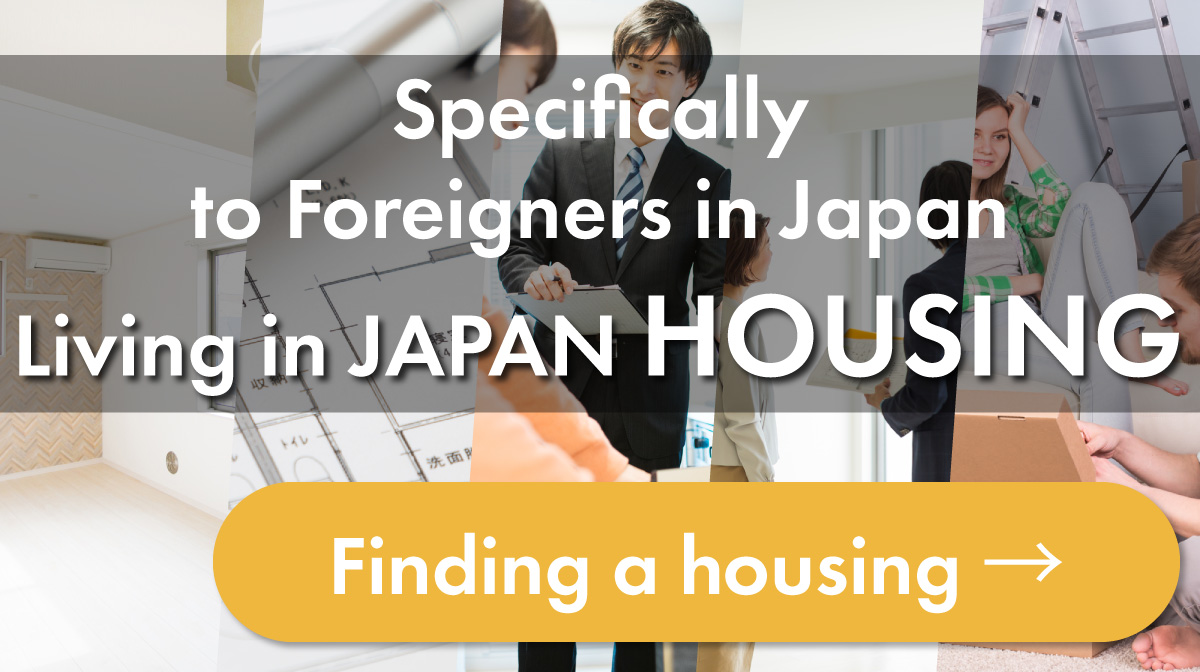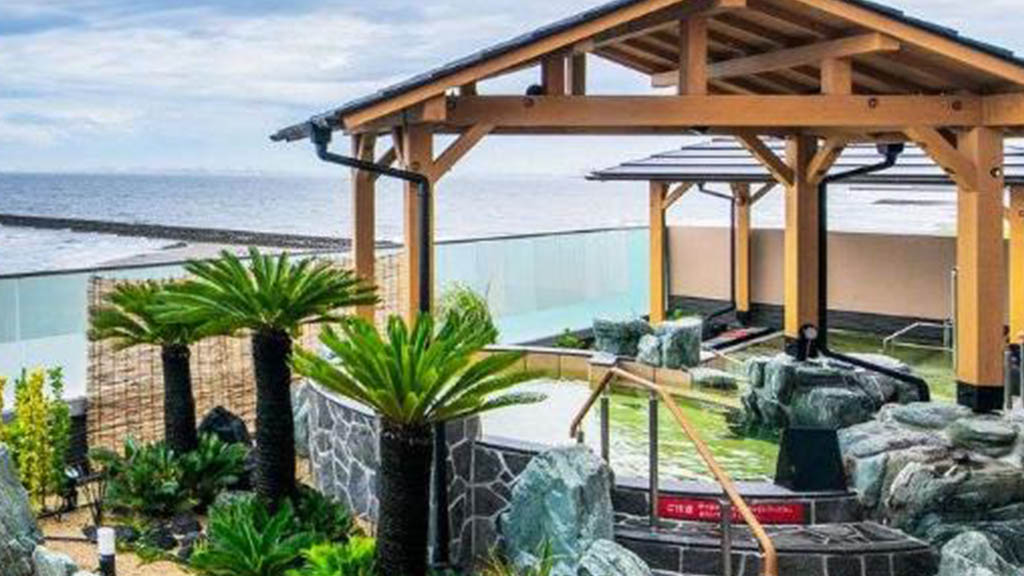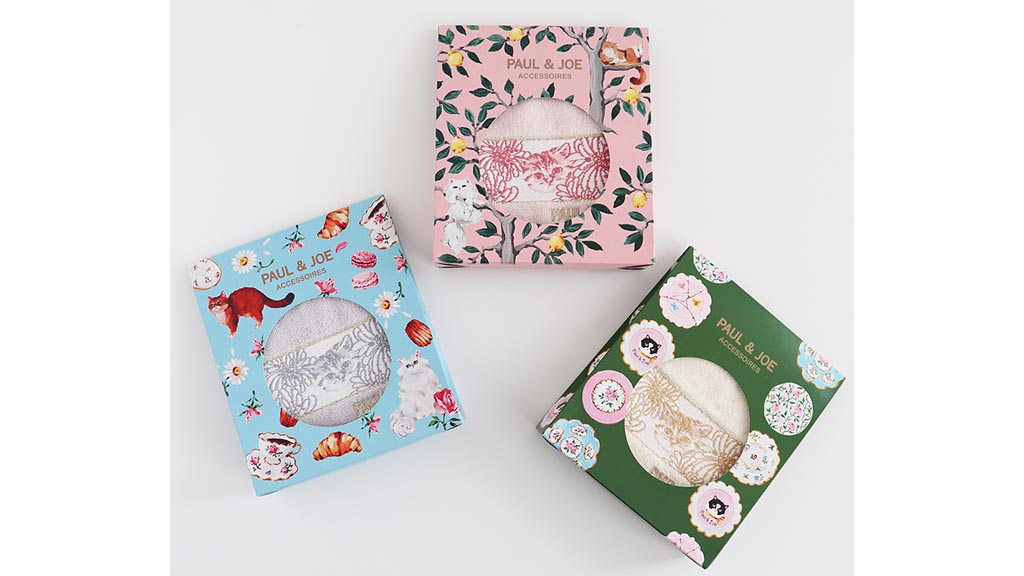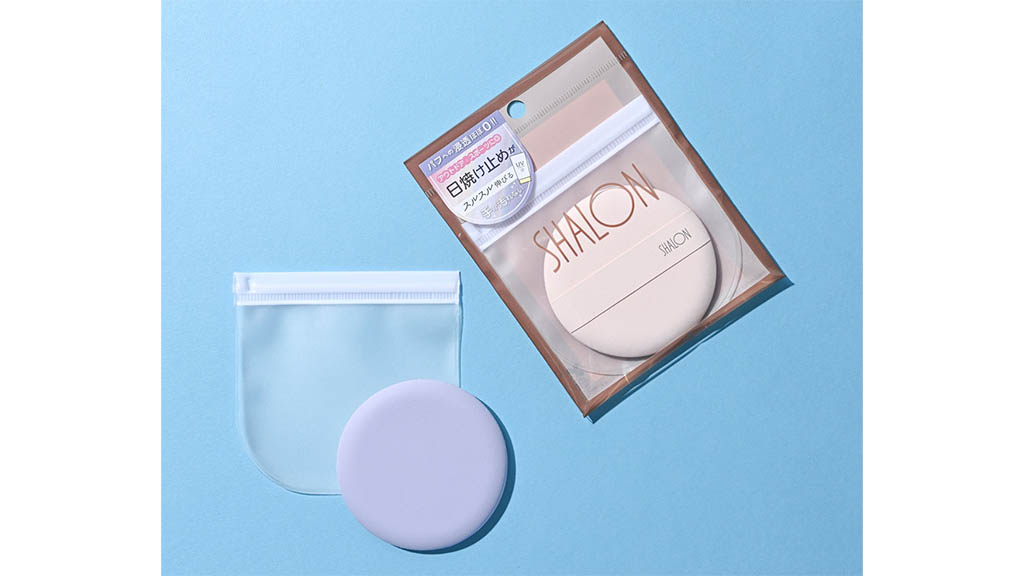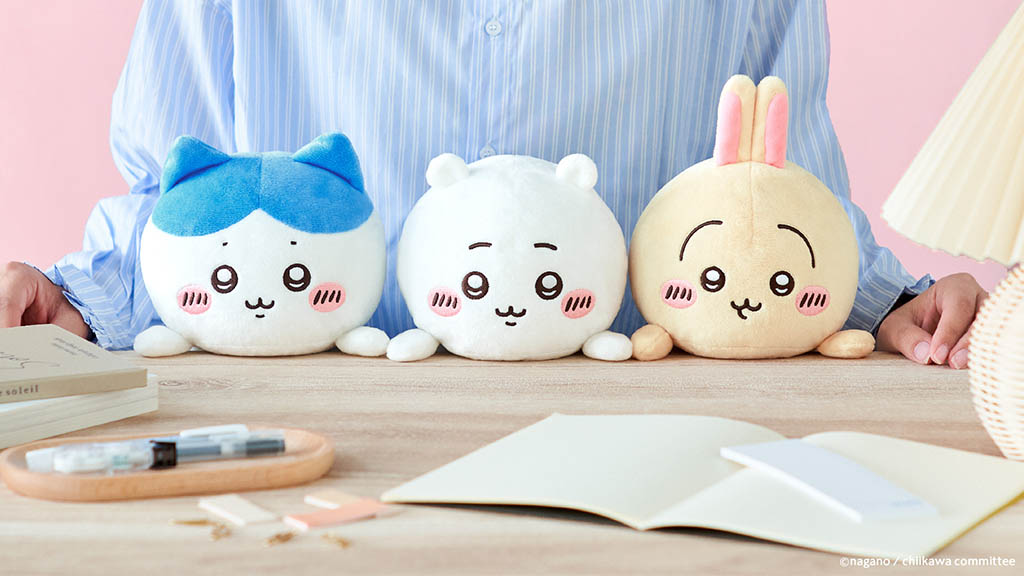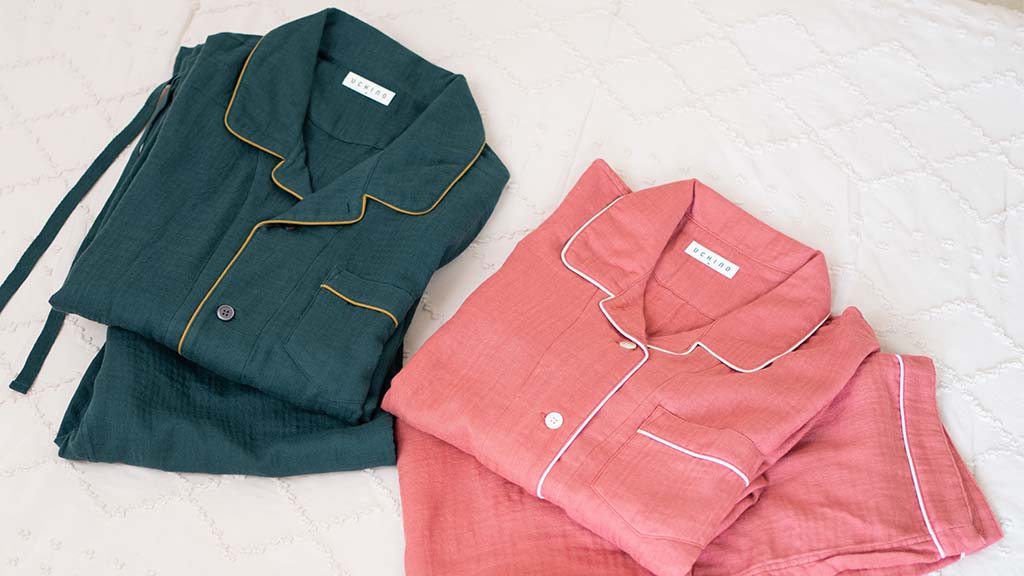[Chart Available] List of Terms for Family Members
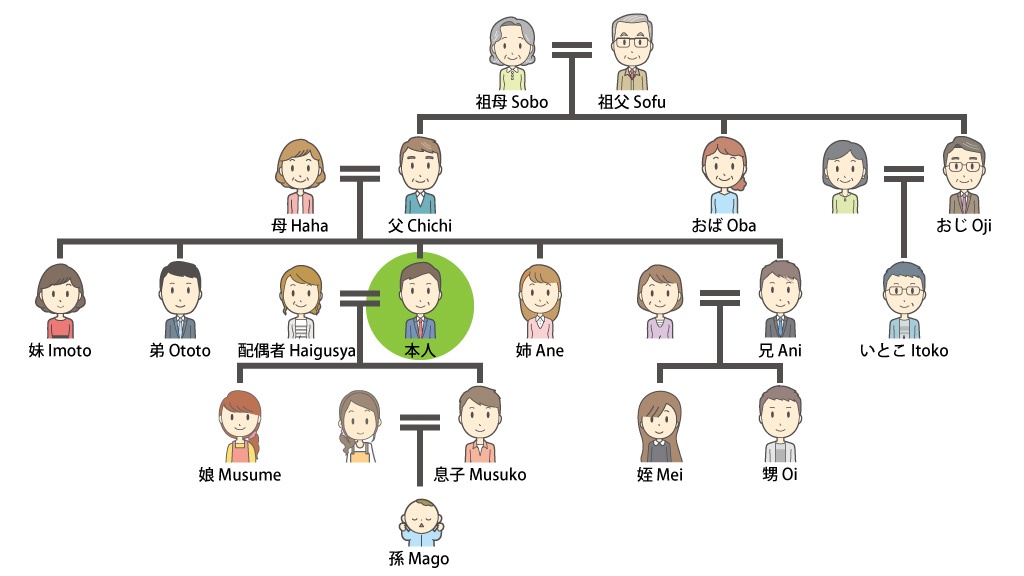
This post is also available in 日本語
Under Japanese law, people who we are related to by blood or marriage are referred to as “親族 Shinzoku”. “Shinzoku” is a word defined under the law.
There are words with similar meanings to “Shinzoku”, such as “親戚 Shinseki”, “親類 Shinrui”, and “縁者 Enja”. Among these, very close “Shinseki” may be referred to as “身内 Mi-uchi”, and the group you are most closely related to by blood, such as “married couple and children” are called “家族 Kazoku”.
In this way, there may a variety of names and appellations for people within the same “Shinzoku”. This time, I will introduce you the main names and ways of calling people in your “Shinzoku”.
Contents
Basic rules when referring to people
When you talk about people in your “Shinzoku” to people outside your “Shinzoku”, you use the “Shinzoku” names to refer to them, such as “私の父 Watashi no chichi” or “私のおば Watashi no oba”.
When you address somebody in your own “Shinzoku” who is above you in station, you use the “Shinzoku” appellation of “Oto-san” or “Oba-san”. In Japan, there is the idea that “calling people directly by their names is rude”, so it is unusual to call people in your “Shinzoku” who are above you in station by their first names. There are a variety of appellations used, and the ones used differ according to family, age, gender, region, and relationship with the other party.
When addressing your spouse’s “Shinzoku” or the “Shinzoku” of the person you are speaking to, you would tend to use polite appellations, such as “さま Sama”, or “さん San”, i.e. “Oto-sama”, “Oba-sama”.
Spouses (配偶者 Haigusya)
- Male spouse
Name: 夫 Otto (Husband) - Female spouse
Name: 妻 Tsuma (Wife)
Parents (親 Oya, 両親 Ryoshin, 父母 Fubo)
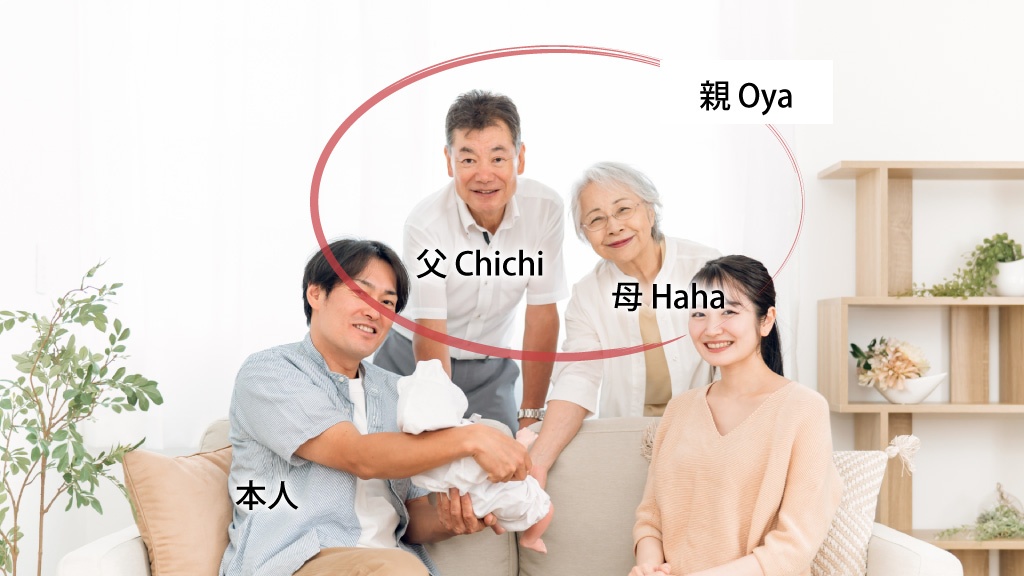
These are general names for your father and mother, but they also include adoptive parents and remarriage partners of your parents.
- Male parent
Male parent name: 父 Chichi (Father)
Name of the male parent of spouse: 義父 Gifu, 舅 Shuto (Father-in-law)
Appellations: Oto-sama, Oto-san, Oto-chan, Papa, Oyaji, Oton, etc. - Female parent
Female parent name: 母 Haha (Mother)
Name of the female parent of spouse: 義母 Gibo, 姑 Shutome (Mother-in-law)
Appellation: Oka-sama, Oka-san, Oka-chan, Mama, Ofukuro, Okan, etc.
Siblings
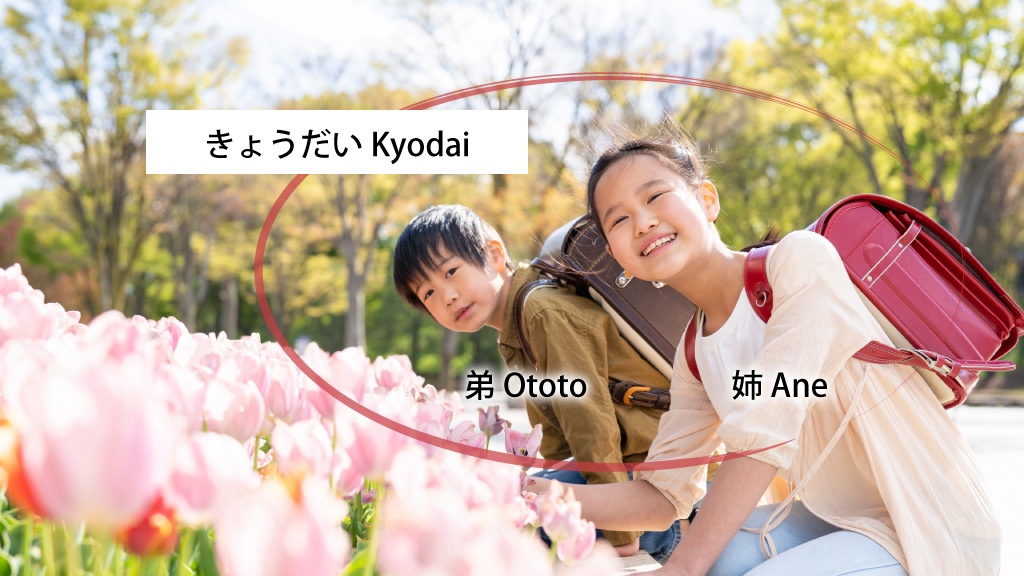
“きょうだい Kyodai” refers to all children of one or both of your parents. It also includes the children of the remarriage partners of your parents.
When writing “兄弟 Kyodai”, there is basically no distinction between males and females, Sometimes “兄弟” refers to only male siblings, whereas “姉妹 Shimai” refers to only female siblings.
- Male sibling who is older than you or older sister’s spouse
Name: 兄 Ani (older brother)
Appellation: Oni-sama, Oni-chan, Aniki, etc. - Female sibling who is older than you or older brother’s spouse
Name: 姉 Ane (older sister)
Appellation: One-sama, One-chan, Aneki, etc. - Male sibling who is younger than you, or your younger sister’s spouse
Name: 弟 Ototo (younger brother) - Female sibling who is younger than you
Name: 妹 Imoto (younger sister), or your younger brother’s spouse
Own child
- Your own male child
Name: 息子 Musuko (Son) - Your own female child
Name: 娘 Musume (Daughter)
Own sibling’s child
- The male child of you or your spouse’s sibling
Name: 甥 Oi (nephew) - The female child of you or your spouse’s sibling
Name: 姪 Mei (niece)
The child of your own child
- 孫 Mago (Grandchild)
Your parents’ parents
- Father’s father/mother’s father
Name: 祖父 Sofu (Grandfather)
Appellation: Ojii-sama, Ojii-san, Ojii-chan, Ji-ji, etc. - Father’s mother/mother’s mother
Name: 祖母 Sobo (Grandmother)
Appellation: Obaa-sama, Obaa-san, Obaa-chan, Ba-ba, etc.
Parent’s siblings
- Father or mother’s male sibling
Name: おじ Oji (uncle)
Appellation: Oji-sama, Oji-san, Oji-chan, etc. - Father or mother’s female sibling
Name: おば Oba (aunt)
Appellation: Oba-sama, Oba-san, Oba-chan, etc.
Parent’s sibling’s child
- Name: いとこ Itoko (cousin)
Appellation: For people above your station, the words Oni-chan and One-chan may be used, as in the case of older siblings.
Summary
“The appellations for Shinzoku” used in Japan are not only the ones we have introduced on this occasion.
What is important to note is that it depends on “who is the basis for describing the relationship”. For example, say that you have two sons. In this case, many families use the youngest child as the reference point and the parents refer to even their own child (oldest son) as “Oni-chan”. Additionally, at the kindergarten where your children, the mothers of the other children may use the child as a reference point and call you “OO’s mama”. If a grandchild is born, the grandchild may be used as the reference point, and you may be called “Ojii-chan” or “Obaa-chan” by your own children.
You should bear this in mind, and slowly get used to the situation.
- If You Wonder What Should Give a Gift, This Is the Best Choice! Cool Packaged Handkerchiefs!
- Apply on UV Cream Without Getting Your Hands Dirty! Why not Have This Handy Puff?
- So Popular Character “Chiikawa” Cheers You Up! Improve Your Arched Back!
- If You Want to Improve Your Sleep Quality, You Should Change Your Pajamas! 3 Recommended Pajamas
- Conveniently 2-Way! This Product Is Useful in Both Summer and Winter.



